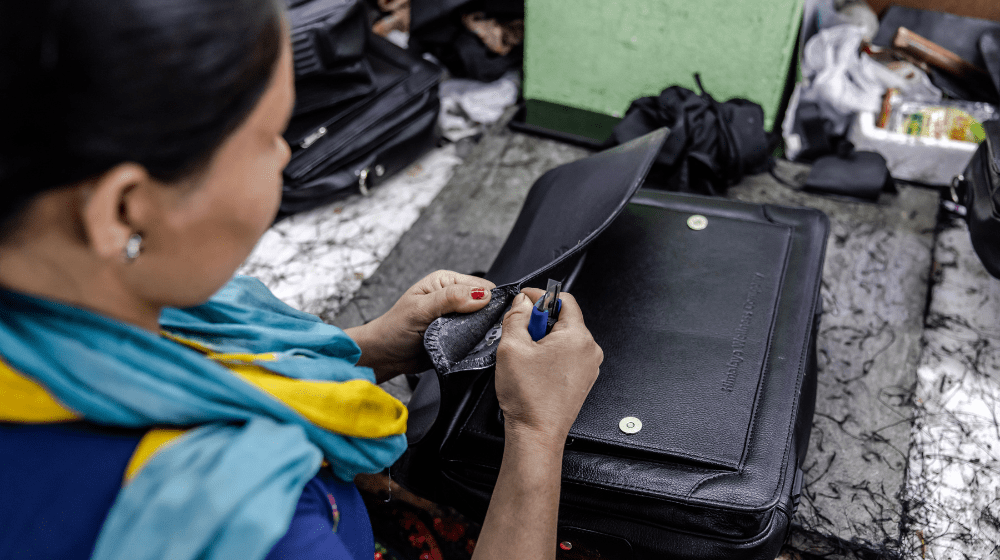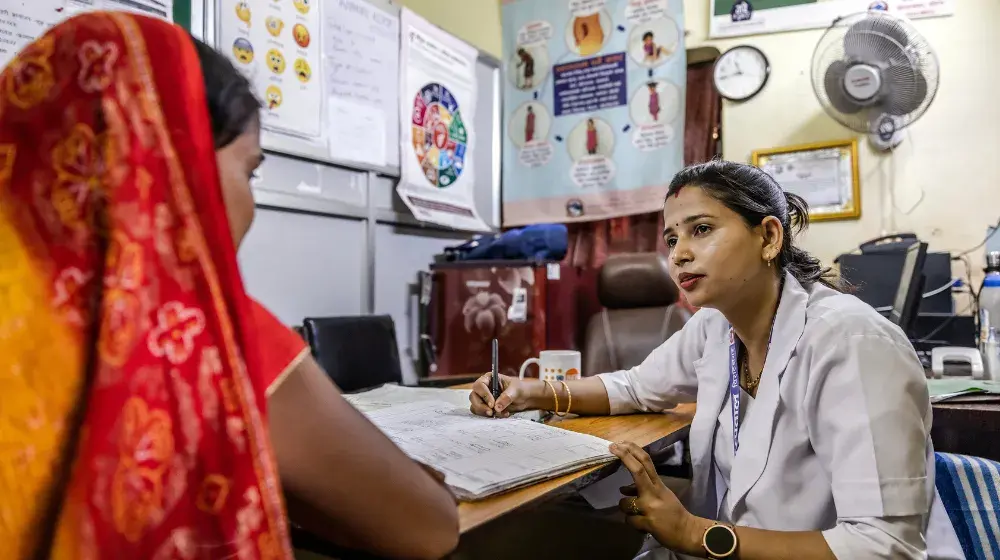At the end of a small narrow road in a residential area of Kathmandu sits an anonymous looking four storey building. On each of the top two floors a workforce of about 90 sit quietly at artisan benches meticulously stitching and treating strips of leather to produce a variety of leather products including bags, wallets and belts.
This busy workplace, with machines buzzing gently and strong earthy, woody scents in the air, is home to a remarkable group of women. A sixth of the workforce in this little factory are hired from across Nepal’s provinces and share a common history as survivors of gender-based violence. They are not unique in this experience.
Levels of gender-based violence against women and girls are high, and one in five women in Nepal has experienced physical violence. Eighty percent of these involves husbands. Attitudes also reinforce violence with 28.5 percent of women actually believing that a wife’s being violently treated is justified.
“I faced violence daily” says one of the young women “I felt unable to speak out against it. I felt alone and had no support.” This response from those women and girls that experience violence is common and women across Nepal suffer from isolation and the threat of being ostracized from communities if they talk out about the violence they suffer. A significant barrier faced by survivors, however, is also the ability to leave the extended family homes of the perpetrators of violence that leaves them feeling trapped, with no income or economic opportunities to live independent lives.
All the women in this factory were exposed to serious forms of violence and accepted for residential stays in shelter homes a year ago to ensure a safe space for them to be able to receive support from trained staff. During these stays they received basic vocational training to assist them to become more independent that can often include beauty therapy and sewing skills.
As part of the UNFPA-partnership with the Royal Norwegian Embassy in Kathmandu and Swiss Agency for Development Cooperation this programme has supported local non-government organizations such as Saathi, link up with the private sector to identify longer term workplace opportunities for survivors. The business owner of this factory, Amit Shah, explains “running a factory in Nepal is challenging including finding skilled labour. Staff turnover is very high and the men tend to migrate as soon as they get an opportunity.”
His daughter, Alisha Shah, who manages the firm continues “we spotted an opportunity when we talked with our partners that are running safe houses for women to provide training and employment for these women that are less likely to migrate. They have been through difficult times, but it is mutually beneficial to employ these women and we value their work. They are hardworking and motivated.”
An initial period of working in the factory consisted of carrying out simple tasks such as piecing together products and as they gained experience, each woman progressed to more complex design tasks, like structuring products. Over a period of six months, they have become a regular part of the workforce.
This experience has not only given these survivors a route out of the cycles of violence experienced, it is also, changing their lives. Although the salary remains modest, having an independent income allows them to move on from their previous lives. “After coming to the factory, we learnt new skills and gained independence, which has given us hope and a positive outlook on life,” says one of the group’s members. Another adds “I now have a more positive place to think about the future.”
All of these women highlight the desire to create a brighter future for their children and many stress the importance of education and investing in their children so they are able to grow into independent adults that can stand on their own two feet, especially those with daughters.
The factory too plans to continue expanding the business and provide increased job opportunities in the future. With the support of these women, the managing director is optimistic about the company’s prospects, of expanding to export to more countries the products. Overall, the company says it is committed to growth and creating more opportunities for its workers.
Being in a stable workplace has given these women more than just an income, but a way out. One explains,
“These skills help us think there is hopefully a brighter future”
She also stresses “women who experience violence in their lives should not hesitate to seek support and should not tolerate violence in their lives.” This is important advice in a country such as Nepal where an estimated 66 percent of women that experience violence do not seek assistance.
These women share a common story of hardship, but also hope and resilience in the face of gender-based violence. And as they sit together sharing their experiences there is a strong sense of solidarity. They are aware that there are challenges ahead, but as a group they now, feel much more in control of their lives, and face the future with a positive outlook.



